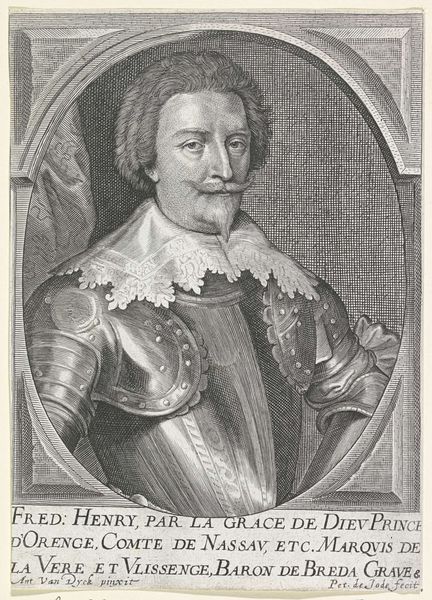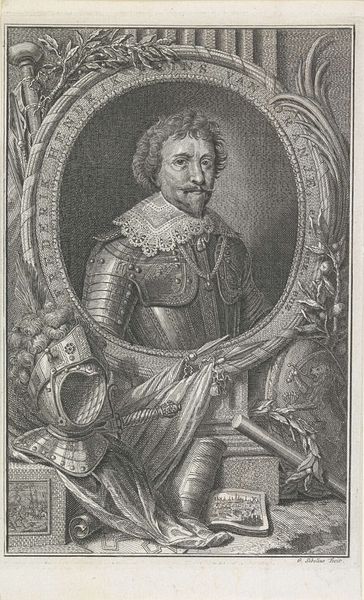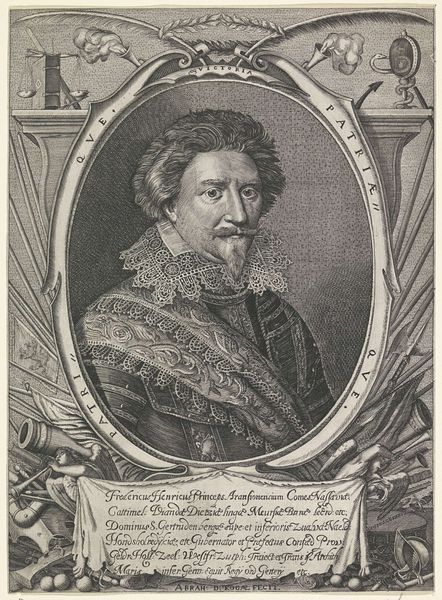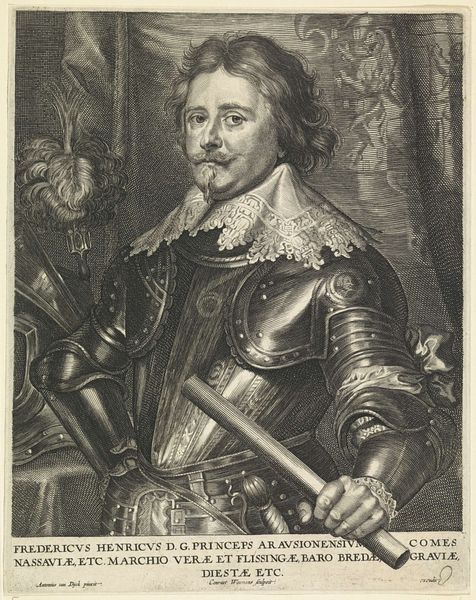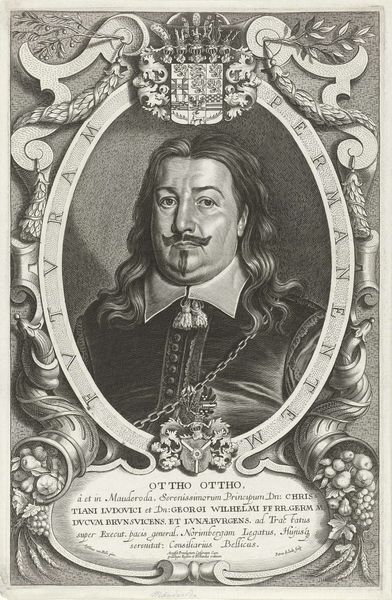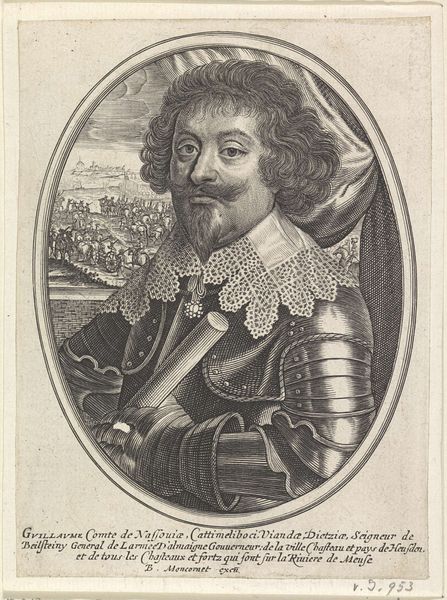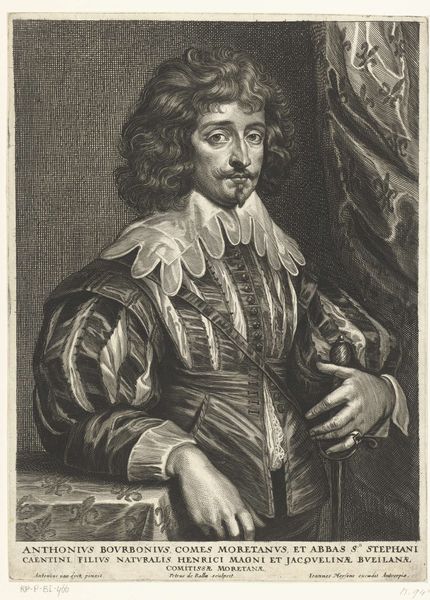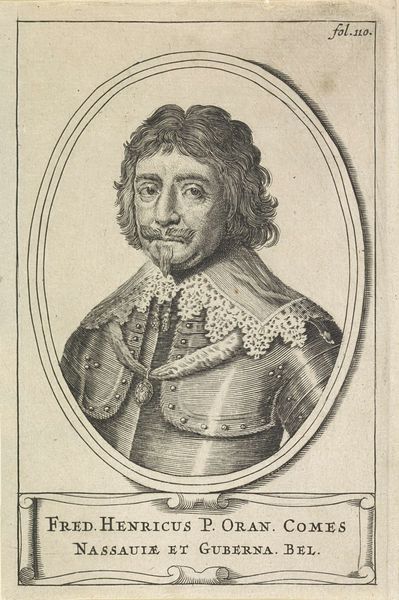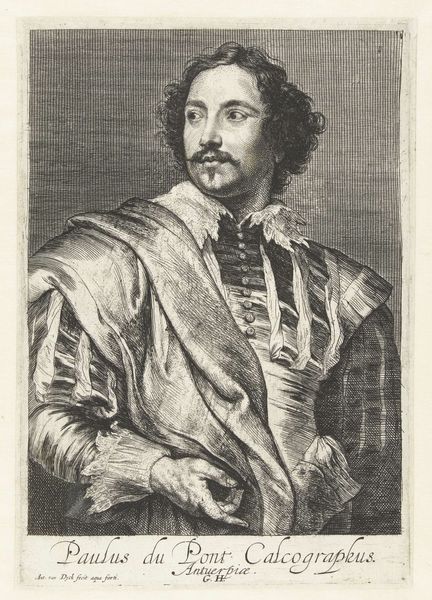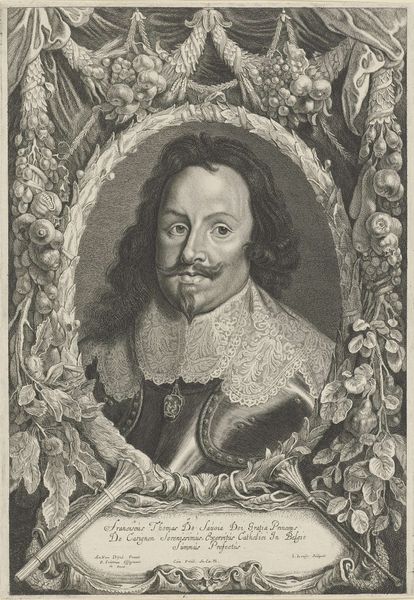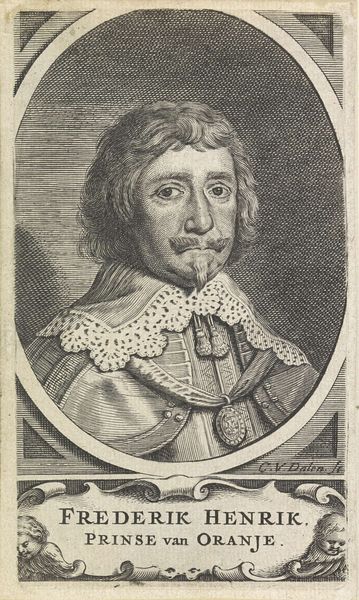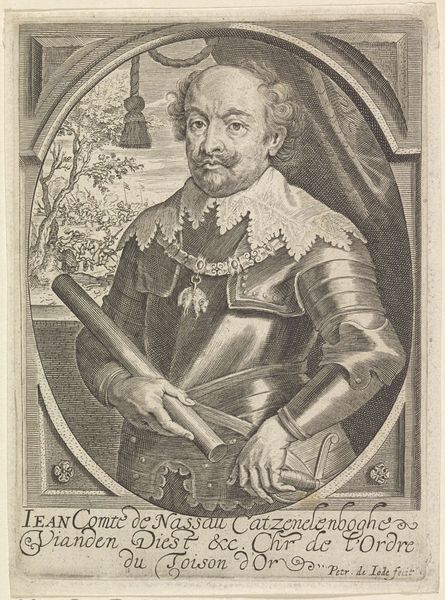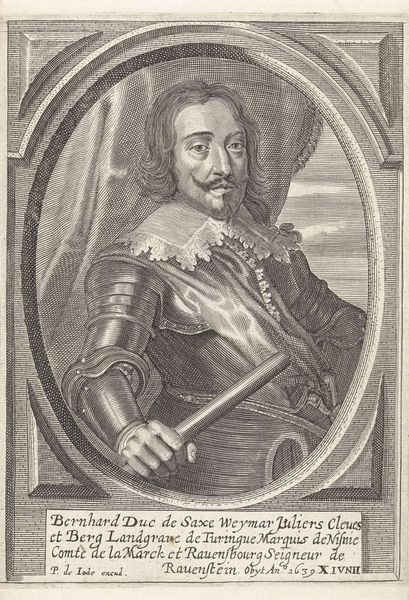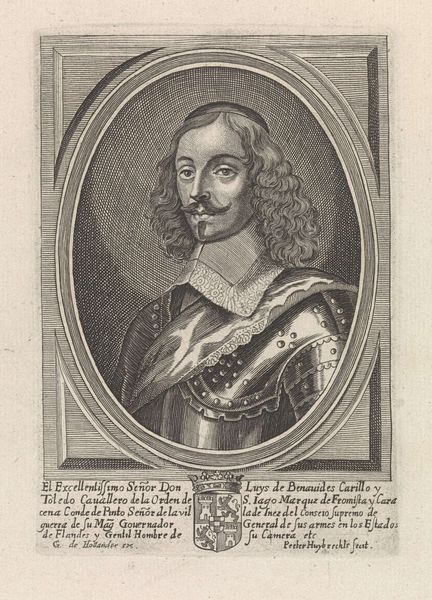
Busteportret van Frederik Hendrik, prins van Oranje-Nassau 1628 - 1670
0:00
0:00
pieterdeiijode
Rijksmuseum
print, engraving
#
portrait
#
baroque
#
dutch-golden-age
# print
#
old engraving style
#
history-painting
#
engraving
Dimensions: height 154 mm, width 111 mm
Copyright: Rijks Museum: Open Domain
Editor: Here we have Pieter de Jode the Younger's engraving of Frederick Henry, Prince of Orange, likely created sometime between 1628 and 1670. It’s so formal, imposing even, with that ornate armor and the distant city in the background. What strikes you most about it? Curator: Beyond the Prince's likeness, observe how the artist frames him. Note the architectural window, and beyond it a battlefield, juxtaposed with the city; here we glimpse not just a man, but the *idea* of a ruler. Think about what symbols the artist has deployed – armor to signify power, leadership, perhaps war? And then this lace collar suggesting wealth and civility. Editor: So, it’s more than just a portrait, but almost a symbol of state? Curator: Exactly. It speaks volumes about the expectations and the image of leadership at the time, even the relationship between a ruler and his domain. The city isn’t just scenery, it’s part of his identity and duty. Do you think someone viewing this at the time would recognize those symbols and understand the message right away? Editor: Probably, in a way we might not fully grasp today without understanding the context. It's fascinating how much meaning is packed into one image. Curator: Indeed. It’s a carefully constructed visual language, isn’t it? Even now, these echoes still resound, impacting how we see leadership and representation today. It's not just about history, it is the start of something enduring. Editor: Thanks! I hadn't considered it that way.
Comments
No comments
Be the first to comment and join the conversation on the ultimate creative platform.
